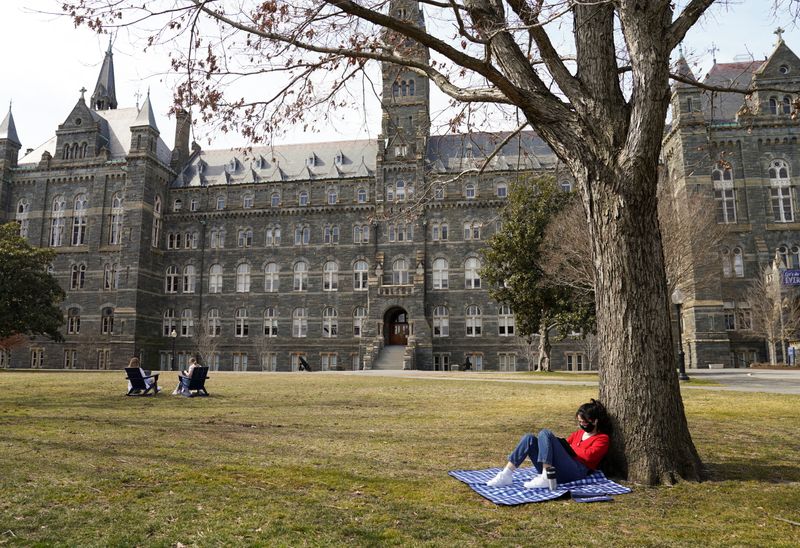By David Shepardson
WASHINGTON (Reuters) -The Biden administration on Tuesday said it was easing travel restrictions on Chinese and other international students into the United States this fall, a change that could provide financial help to some colleges whose enrollments declined during the coronavirus pandemic.
The U.S. State Department said in a statement it is expanding its national interest exemptions to cover students and academics around the world starting on Aug. 1 after it made the change in March for European students.
Reuters first reported the planned announcement for Chinese students, the largest number of international students in the United States. About 35% of international students in the 2019-20 school year were from China, according to the International Education Exchange (IEE), nearly twice as high as the second highest, India.
The government has barred most non-U.S. citizens who have been in China, Brazil, South Africa, Iran and most of Europe within the prior two weeks. Now students from all those countries will be eligible to enter the United States for fall classes.
In the 2019-20 academic year 372,000 Chinese nationals attended universities and colleges in the United States, the IEE said in a November 2020 report.
Overall postsecondary enrollments declined 2.5 percent in fall 2020, nearly twice the rate of enrollment decline reported in fall 2019, according to the National Student Clearinghouse.
In January 2020 then President Donald Trump first imposed the restrictions barring nearly all non-U.S. citizens who were in China from entering the United States.
U.S. colleges and universities have been urging the State Department to take the step before international students had to make enrollment decisions.
The American Council on Education (ACE) had pressed the administration of President Joe Biden to act quickly, saying in a letter last month it could "deliver a welcoming message to current and prospective international students, which can help restore the U.S. as a destination of choice, as well as supporting an important economic activity as the U.S. economy recovers from the COVID-19 pandemic."
An administration official said despite the announcement officials are "closely monitoring the status and trajectory of the pandemic."
It is still unclear whether U.S. colleges or the U.S. government will recognize vaccinations received by Chinese students that have not been approved by the U.S. Food and Drug Administration. Some U.S. schools are requiring students to be fully vaccinated before classes resume.
Another big issue has been the requirement that first-time student visa applicants have in-person interviews at U.S. embassies and consulates. The State Department said on Tuesday it "continues to seek ways to process more visa applications, in line with science-based guidance from health authorities."

ACE cited a study that the overall economic impact generated by international students had declined by $1.8 billion during the 2019-20 academic year, from $40.5 billion in the prior year.
In the 2019 school year Chinese students were estimated to have an economic impact of $15.9 billion on the United States, the IEE report said.
